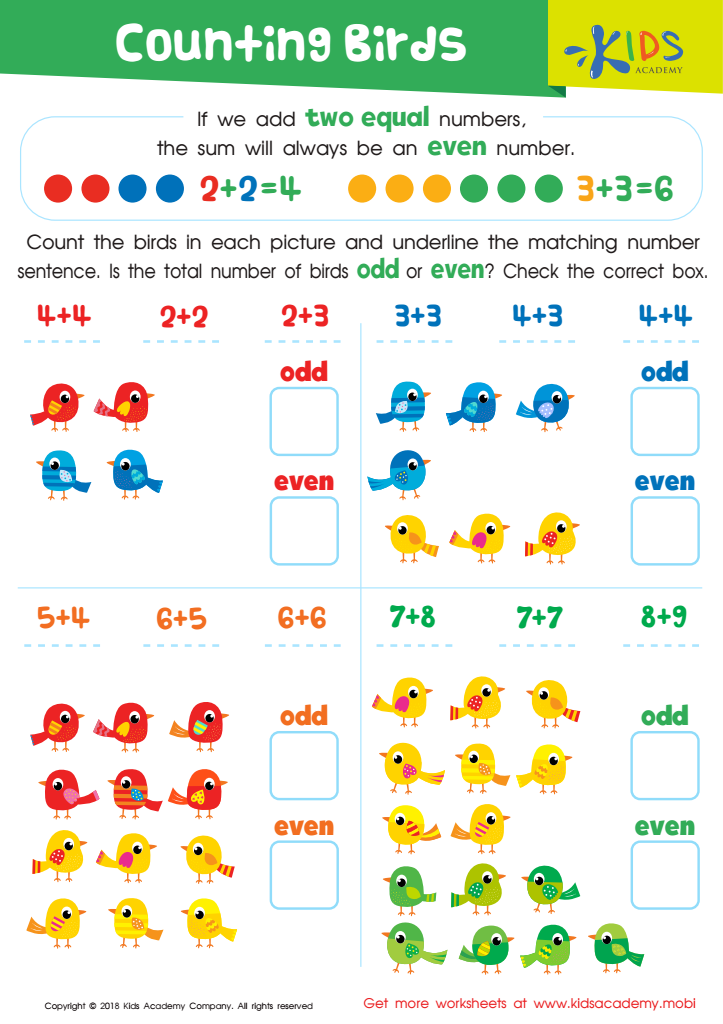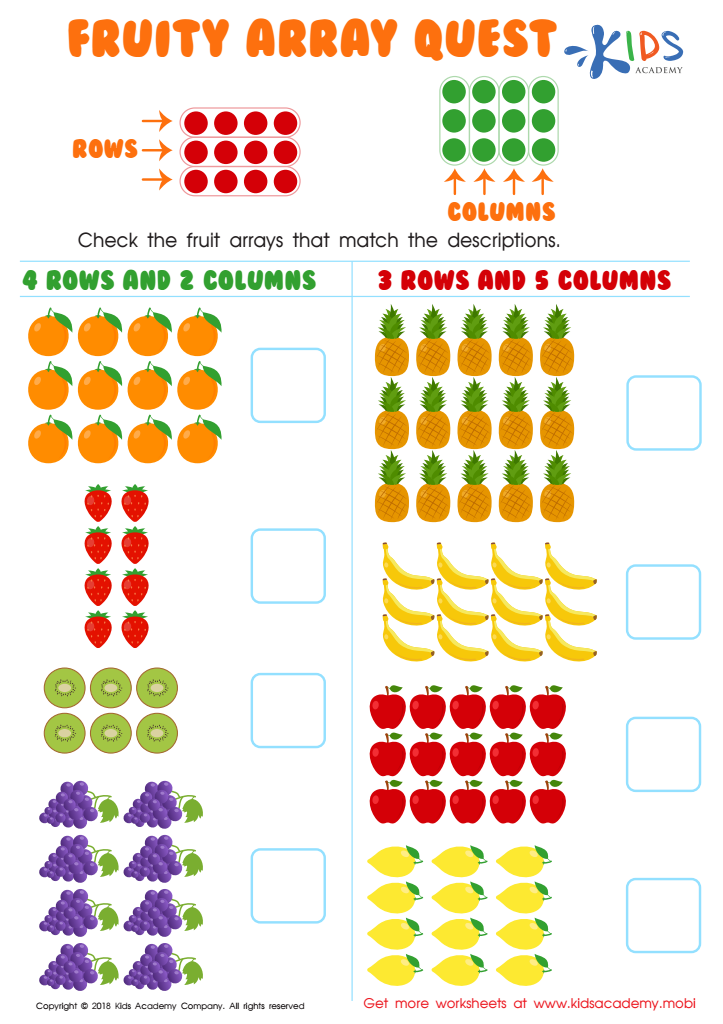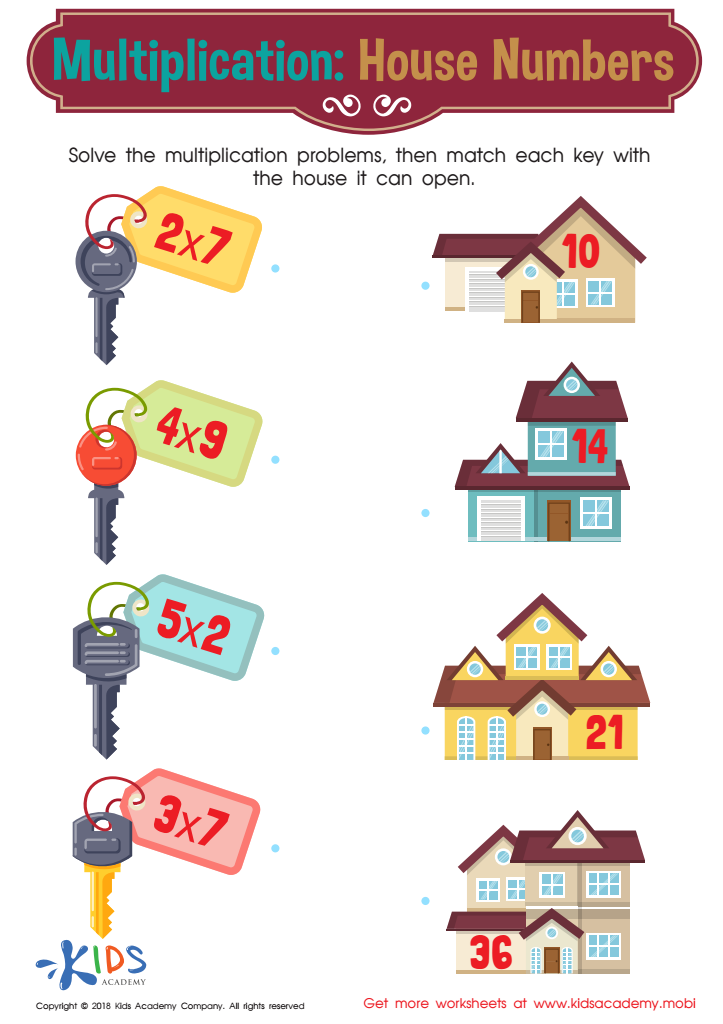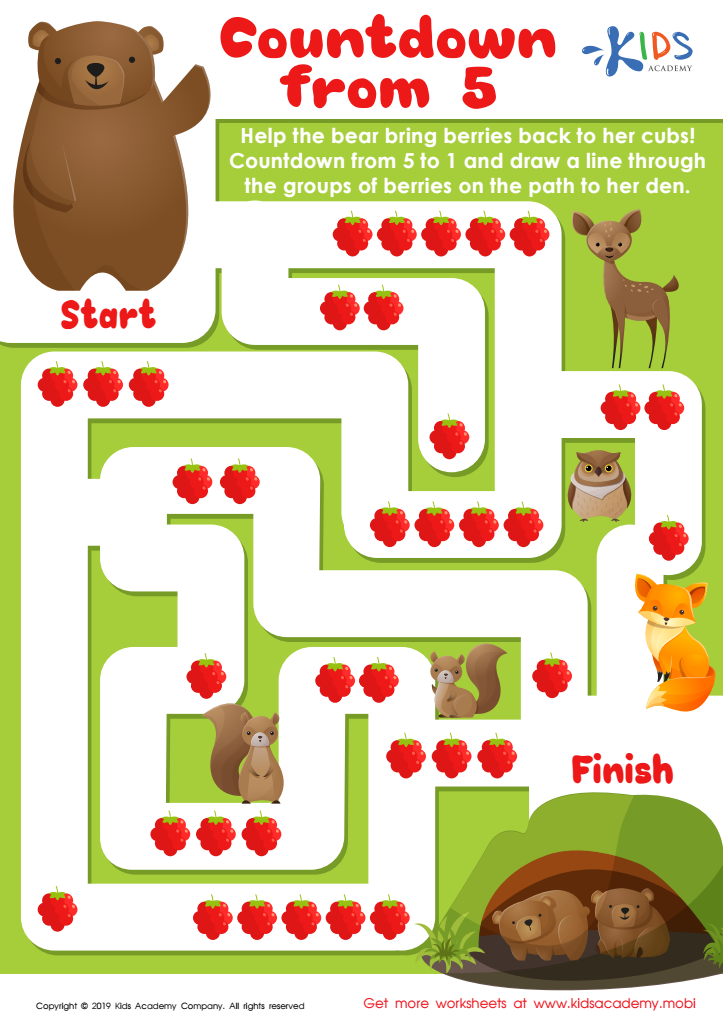Number Recognition Easy Matching Worksheets for Ages 3-9
5 filtered results
-
From - To
Introducing our Number Recognition Easy Matching Worksheets, designed for children aged 3-9. Perfect for early learners, these engaging worksheets help kids identify numbers while enhancing their cognitive development. Featuring fun illustrations and simple matching exercises, our worksheets make learning enjoyable and effective. Your child will practice recognizing numbers, counting, and improving fine motor skills, all in one interactive activity. Ideal for use at home or in the classroom, our number recognition matching worksheets are an excellent resource for parents and educators aiming to build a strong mathematical foundation. Visit Kids Academy to download and get started today!


Counting Birds Worksheet


Fruity Array Quest Worksheet


Colorful Arrays Bingo Worksheet


House Numbers Worksheet


Countdown from 5 Worksheet
Number recognition and easy matching for ages 3-9 play a critical role in a child’s early development. These fundamental skills are the building blocks for future mathematical learning, enabling children to understand more complex concepts as they progress in their education. Parents and teachers should care about these abilities for several essential reasons.
Firstly, number recognition helps children identify and name numbers, which is the first step towards numerical literacy. This foundational knowledge allows kids to follow along in activities, games, and schoolwork more effectively. Easy matching activities also encourage pattern recognition, logical thinking, and problem-solving skills, which are crucial for brain development.
Secondly, mastering number recognition and matching instills a sense of confidence and achievement in children. When kids successfully match numbers or correctly identify them, they feel proud of their accomplishments, boosting their self-esteem and fostering a positive attitude towards learning.
Additionally, developing these skills at an early age can enhance a child’s ability to perform daily tasks, such as counting, measuring, and handling money. These practical life skills are indispensable for future independence.
By investing time in number recognition and easy matching exercises, parents and teachers provide children with essential tools, paving the way for academic success and lifelong competence in dealing with numbers and mathematical concepts.
 Assign to My Students
Assign to My Students





















